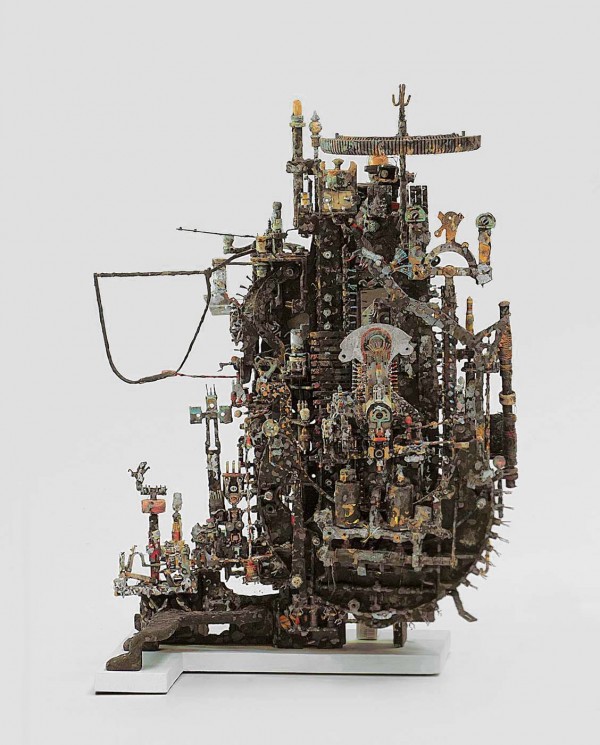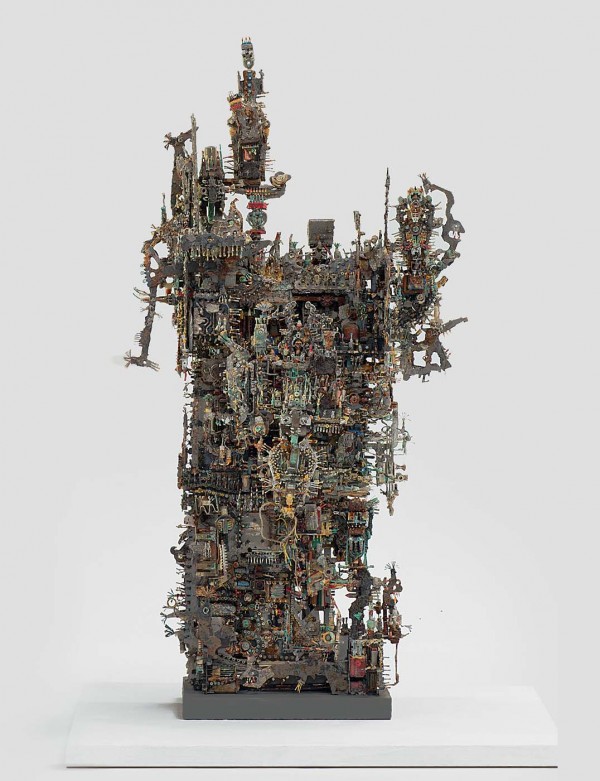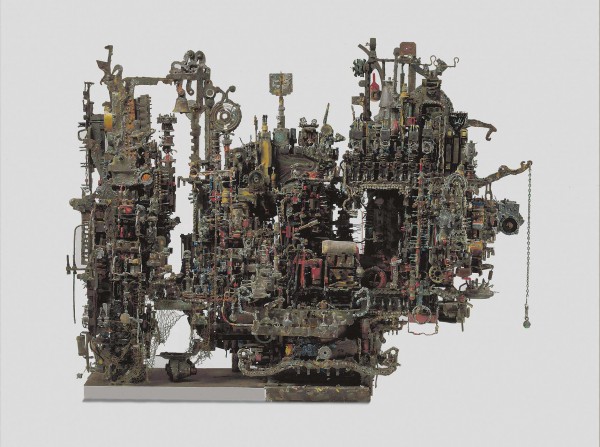Ernst Herbeck souffre d’un grave bec-de-lièvre congénital qui affecte sérieusement sa capacité de parole et dont il est opéré à plusieurs reprises. Sa scolarité en est perturbée mais il entame néanmoins des études de commerce après le collège. Au sortir d’une guerre qui semble l’avoir particulièrement marqué, il passe quelques mois à la clinique universitaire de Vienne, puis tente de reprendre une vie normale. Deux ans plus tard, il est de nouveau hospitalisé, cette fois pour schizophrénie. En proie à des hallucinations, il a le sentiment que des personnes et des animaux pénètrent son corps. En 1946, il est interné dans l’établissement psychiatrique de Gugging, puis, quinze ans plus tard, devient pensionnaire de la Maison des artistes, sollicité par le professeur Navratil qui repère chez lui un talent pour l’écriture et lui propose à chacune de leurs rencontres de rédiger un court poème à partir d’un titre précis. En est issue une œuvre d’une liberté totale qui a trouvé sa place dans la poésie contemporaine allemande. En 1977, Deutscher Taschenbuch Verlag publie toute la production poétique de Ernst Herbeck, Alexanders poetische Texte [Les textes poétiques d’Alexandre] et, en 1999, paraît chez Residenz Verlag l’ensemble de son œuvre, Im Herbst da reiht der Feenwind: gesammelte Texte 1960-1991 [En automne, le vent des fées : textes 1960-1991]. Il existe une traduction en français sous le titre 100 poèmes (Harpo &, 2002).
A.C.M.
Enfant d’une grande timidité, Alfred Marié s’oriente vers le métier de peintre en bâtiment. Incité par un ami, il entre en 1968 à l’Ecole régionale supérieure d’expression plastique de Tourcoing, qu’il quitte au bout de cinq ans, détruisant alors les travaux qu’il y a réalisés. En 1974, il rencontre Corinne, qui devient sa compagne et un soutien nécessaire à son œuvre ainsi qu’en témoigne le nom d’artiste qu’il adopte : A.C.M. – Alfred Corinne Marié. Au bout de deux ans d’errance, le couple s’installe dans la maison familiale d’Alfred, à l’abandon depuis plusieurs années. Tout en la reconstruisant, A.C.M. reprend son travail artistique et investit l’atelier de son père, un ancien tisserand. Il sélectionne d’abord des pièces extraites de vieilles machines à écrire, réveils, transistors, ou composants électroniques, fils électriques, etc., puis, après les avoir nettoyés, il les métamorphose à l’acide et les oxyde pour les assembler par collage. Il bâtit ainsi des architectures, sortes de cathédrales ou de bateaux, des labyrinthes peuplés de miroirs.


